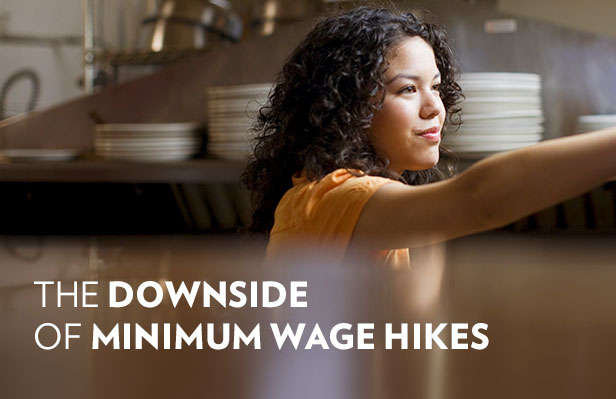Media

More Evidence Raising the Minimum Wage is Bad for Pa.
In his 2018-19 budget proposal, Governor Wolf mandates a 65 percent increase to the state’s minimum wage, from $7.25 to $12 per hour. The governor reiterated his support for this policy last week, noting Pennsylvania’s minimum wage hasn’t kept pace with neighboring states.
With approximately 1.6 million Pennsylvanian workers earning between $7.25 and $12 per hour, it’s critical for policymakers to understand how such a drastic increase to the minimum wage may affect the state’s economy.
The Independent Fiscal Office (IFO) published a study in April predicting the costs and benefits of a phased-in minimum wage increase to $12 per hour. They anticipate a 33,000 reduction in jobs (either through layoffs or decreased hours) and a net income gain among low-wage workers.
However, the study overlooks both the consequences of fewer entry-level jobs on long-term economic growth and the immediate cost of unemployment compensation.
Interestingly, IFO researchers suggest teenagers will bear the brunt of a jobs reduction. But according to the Heritage Foundation, increasing the minimum wage encourages more teenagers and college students to enter the labor market—potentially crowding out workers who rely on these jobs to make a living.
Instead of enacting policies that reduce employment opportunities for the working poor and hinder economic growth, policymakers should seek solutions assisting workers and employers. Such policies can include:
- Tax Reform. In response to federal tax cuts last year, at least 20 major Pennsylvania companies chose to increase wages or tax home pay. Reducing the 9.9 percent Corporate Net Income Tax, the highest effective rate in the country, would spur economic and job growth.
- Welfare Reform. Adding work requirements to Medicaid and the food stamp program can help individuals gain work experience and move from entry-level positions to family-sustaining jobs.
Poverty's best antidote is encouraging job growth. Governor Wolf’s minimum wage position will decrease job opportunities for the very people the policy is intended to help.